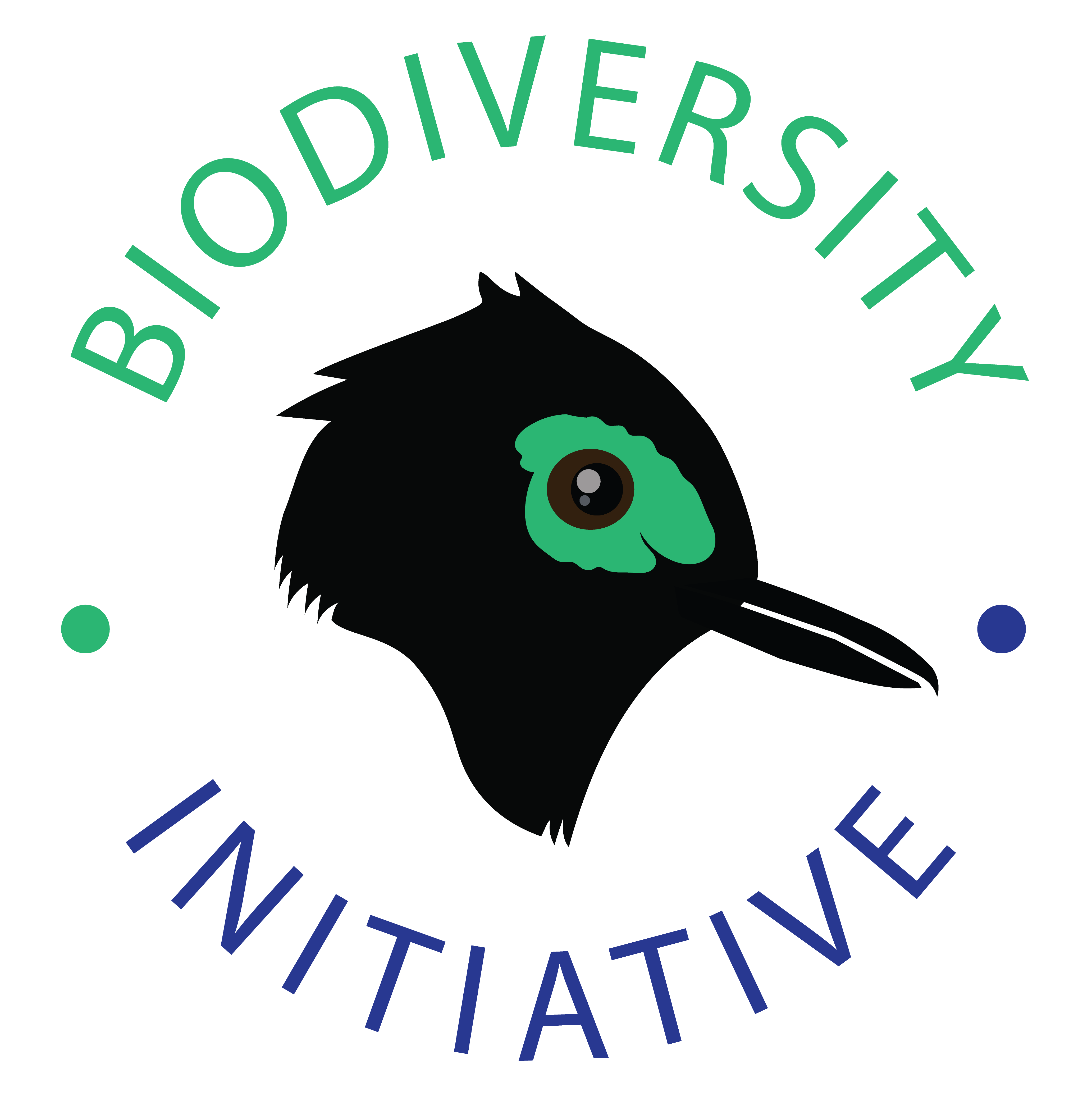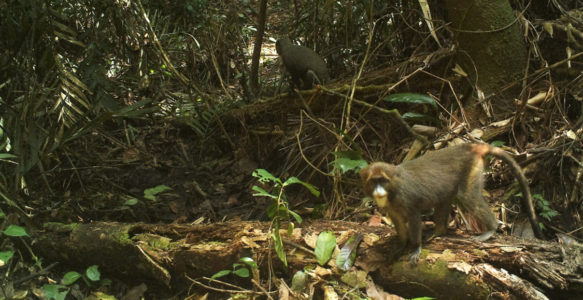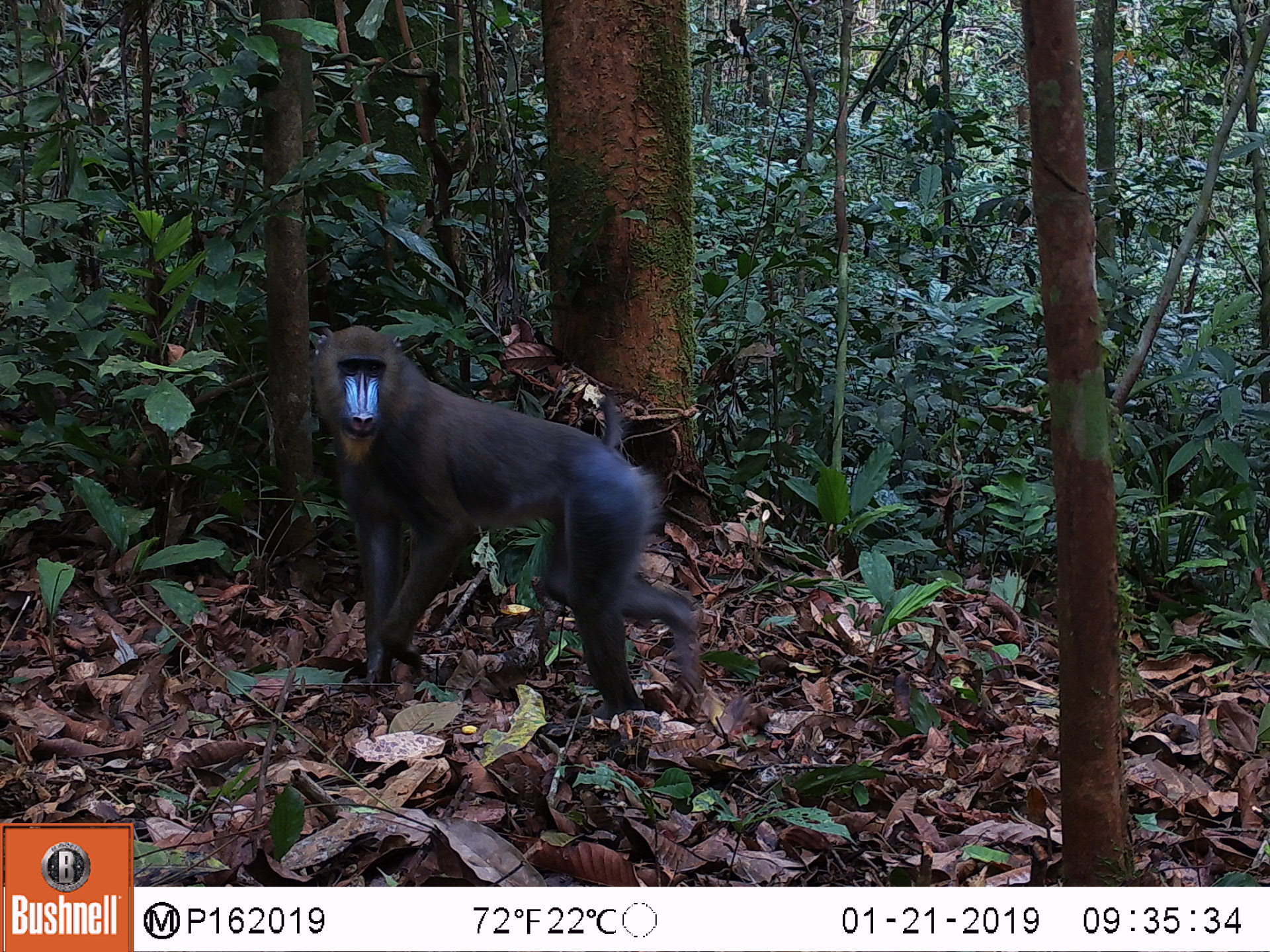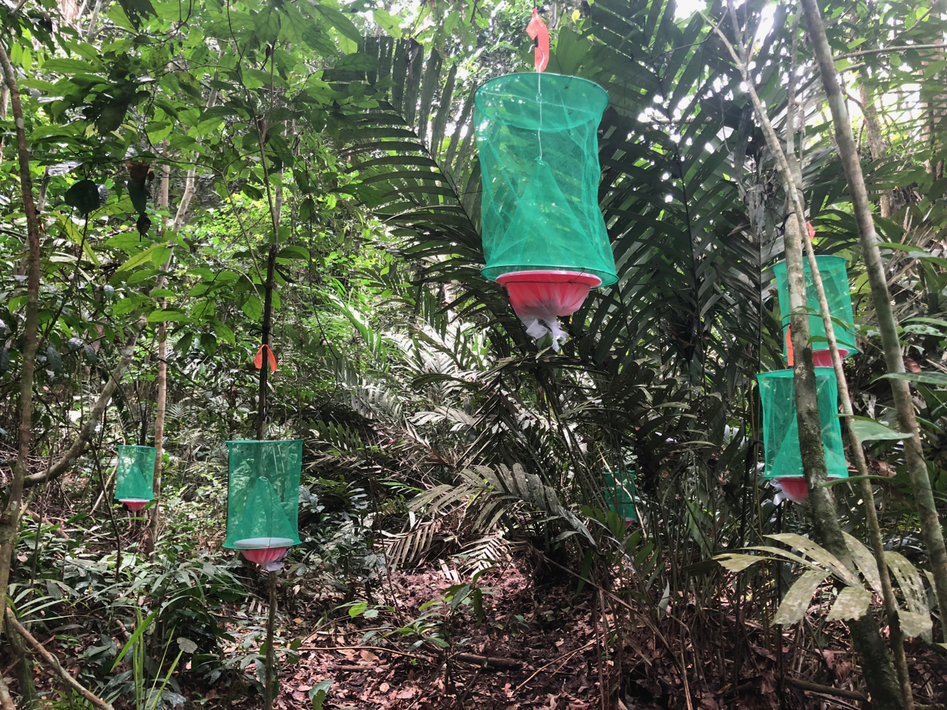Why do we study mammals in Equatorial Guinea?
Mainland Equatorial Guinea’s wildlife includes iconic and endangered species of African mammals such as the western lowland gorilla, central chimpanzee, and forest elephant.
In addition to these well-known and charismatic animals, Equatorial Guinea is home to many other species under threat from habitat loss and illegal bushmeat hunting. For instance, the Congo clawless river otter, a resident of Equatorial Guinea’s primary forests, was recently upgraded from ‘least concern’ to ‘near-threatened’ on the IUCN Redlist due to habitat loss and persecution. Even populations of common species, such as duiker, are subjects of increasing concern due to heavy hunting pressure in combination with habitat loss on mainland Equatorial Guinea.
Challenges to biodiversity in Equatorial Guinea:
Equatorial Guinea has developed an ambitious framework for conservation through the creation of Protected Areas (PAs), which now cover 3920 km2 (or 19%) of the country. Equatoguinean law prohibits logging and hunting in these PAs – accordingly, “conservadores” and “eco-guardias” have been employed by INDEFOR-AP to enforce these laws.
Unfortunately, lack of resources and capacity has made enforcement extremely challenging, and illegal logging and poaching are rampant throughout these important areas.
How is Biodiversity Initiative helping protect biodiversity in Equatorial Guinea?
Biodiversity Initiative, in partnership with INDEFOR-AP, developed an enforcement plan focused on getting conservadores into PAs to deploy camera traps. These monitoring programs facilitate future INDEFOR-AP activities by identifying the specific areas and times when conservadores should deploy additional camera traps, send in INDEFOR personnel, and stop illegal activity.
Additionally, Biodiversity Initiative is using a range of technology and research on its expeditions to understand the magnitude of impact human activities have on mammal diversity in Equatorial Guinea.
[paypal_donation_button]

 Camera trapping
Camera trapping DNA Metabarcoding
DNA Metabarcoding